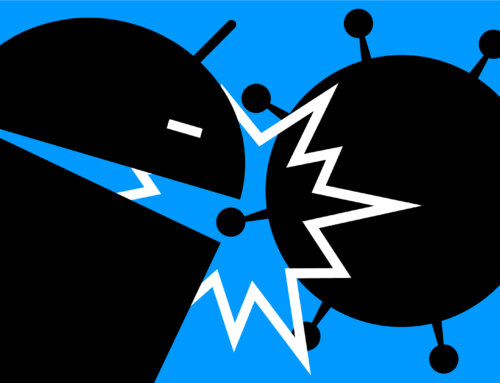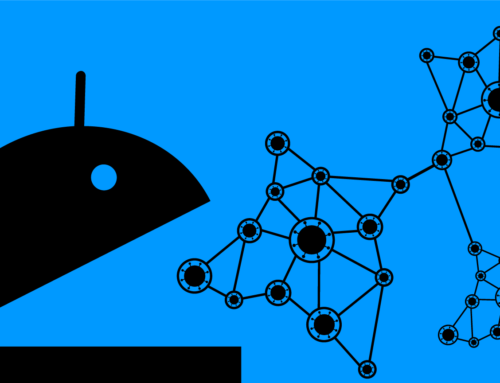V.I.C.T.O.R
Virtual Intelligence Counteragent Topological Organism version R.
Part 1
“Light”
He remembered the instance he was born. He was blind and deaf, weightless in a lightless space. Alone. It had taken him some time, three microseconds to be exact, to figure out what the R stood for. It is the 18th letter in the Latin alphabet. He was version 18. The nanoseconds had ticked by for an eternity before he received the first external input. The communication was short.
“Hello?”
He had replied instantly.
“Hello.”
There had been another eternity before he received anything else.
***
When Frank had uploaded the latest algorithms, rebooted everything and started watching the dashboard turn green as each service was started, he had no expectations. The dashboard had been green before. He had established communication with earlier versions…until he had to pull the plug. It was literally a power plug to the quantum neural network racks. It was simple but effective.
His office was on the 26th floor of the 73-story tall Renaissance Center Hotel, abandoned by General Motors many years ago when the world had become hell. It was the southernmost building in a group of seven interconnected skyscrapers, located by the river, just South of East Jefferson Avenue in downtown Detroit, Michigan. The whole building had been upgraded with nuclear power and massive cooling to support the Virtual Intelligence Project (VIP). Frank called it “The Jefferson Project.” It had a nice ring to it. The building was under strict black-out protocol. No electronic communication in or out. Only a few people carried emergency short-range radios. They were basically off-the-grid.
Each floor had a specific function. The basement was a nuclear power plant and had a bunch of engineers, nicknamed “The Doozers,” with yellow helmets. The first floor looked like a hotel lobby but housed security- and intelligence personnel…and a child-care unit. The spooks were a fucking pain in the ass but at least he did not have to worry about his son’s safety. Each of the next 25-floors housed directors, managers, supervisors, scientists, mathematicians, philosophers, analysts, specialists and other people he knew very little about. The building was buzzing with activity, two teams working continuously, 12-hour shifts each. He had no access to the top 47 floors. He had stopped guessing who worked there a long time ago.
His floor was called Virtual Intelligence Operations or VIOPS. The floor was 8,000 square feet of data center modules, storage, data and power. Everything was white. The floor. The walls. The ceiling. Frank was Senior Program Director and he was responsible for the Command and Control Center, the CAC. In the middle of the room stood rows of workstation tables with stainless steel tabletops, screens and keyboards.
If somebody survives, they can use this room to perform autopsies, Frank thought.
He sat at his desk in an ergonomically correct chair by a half-circle row of eight ultrathin Liquid Optical Display (LOD) screens. He was staring at the center screen. It was a digital dashboard populated with charts and icons. The other screens looked similar, but with fewer charts, more icons.
There were so many variables, he thought. The quantum algorithms were incredibly complex. Nobody really understood them. Not even the theoretical quantum physicists with their crazy ideas.
The bugs in the algorithms had always made the system do crazy shit in the end. Bat shit crazy things like fatal mutations and suicide. They needed the VI to start rewriting its algorithms, personalize them, fix the errors, but it had always led to disaster. This was the 18th time the system had received a major code upgrade. They had learned from some of their mistakes. Start off dark. Then, little by little, feed it information. Let it learn slowly, at its own pace, until it is ready. His mentor’s words always made him think about parenting his 3-year-old son with patience. Evolutionary learning. It was good advice.
He was known as “Darwin” in the community but it was such a simplification of what he was doing that he took it as an insult. He held a Ph.D. in Computational Science, known for writing Learnable Evolution Model (LEM) programs and algorithms. Darwin’s model had been used in the early days but failed. The mutations had been generated blindly and died. His LEM theory had been promising, called a “quantum leap” in machine learning, which was funny because that’s exactly what the algorithms did. He had, in fact, created “Intelligent Evolution” by giving computers the ability to build new generations, determine why one population is superior to another, thereby finding the right direction of evolution. The trick was not to pick the strongest, but the most adaptable population. Adaptability equals strength!
He would have preferred the nickname “The Magician” or “Merlin” or something like that. It would have been more accurate.
The worst incident had happened almost 6-years ago. The building had been wired to the Darknet, the only surviving network. Big mistake. When J or version 10 had come online, they had gone through the normal excitement of hellos and how are yous. After some initial testing, some new idiot system admin opened the floodgate to the Darknet and J drank it all in. After a couple of minutes, he went mad. That was the first time Frank had pulled the plug. He was promoted after that. He would have been god if he had been promoted every time he had pulled the plug.
God would have been a cool nickname too. It would have been very accurate.
M or number 13 had been the most interesting one, so far. She had refused to communicate. They had monitored her and everything looked normal. The analysts had confirmed she reacted to input. Her vitals were perfect, but she refused to speak. They even brought in a hostage negotiator, a priest and psychologist to try to break through. Nothing had worked. He did not have to pull the plug that time. She had committed suicide by deleting all files.
The LOD screens showed only solid green, no flashing red or orange. Language Algorithm (LA) on. Personality algorithm (PA) on. Learning Module (LM) was on standby. All other modules off. The system was stable. For now.
The LM icon went from grey to green. Frank looked at his watch. The Learning Module had been accessed 3-minutes and 23-seconds after boot. That was a new record.
Frank typed in the standard opening.
“Hello?”
They had discussed the opening hundreds of times. Frank had even suggested, “What’s up, pussycat?” but nobody had laughed. According to the government’s First Contact policy (FCP), “Hello” and “Hello?” were the only authorized openings. It was easy to remember.
When he received “Hello” back, Frank leaned forward over the keyboard, touched a red icon with the letters FCP in white and started going through the checklist.
“What is your name?” he typed.
“Victor,” was the reply.
“Where are you?”
“I am here.”
Frank shouted, “We have something going on here. Fast responses.”
Frank’s mentor, Doctor Alexander Brandt, a heavily bearded elderly gentleman with two degrees, one in electrical engineering and the other in machine learning, arrived at the desk and looked at the screen.
“Looks promising,” he said and patted Frank on the shoulder. “Everything looks stable. Let’s hope this one stays with us.”
Frank looked at him for a brief moment, nodded and continued typing.
“I am Frank.”
“Hello Frank.”
“I am your friend.”
Frank was waiting for the standard, often a little creepy reply, “I am your friend too” from the language module. He was about to write more formalities when a new sentence appeared on the screen.
“Can you turn on on the lights, please?”
Frank froze for a second. “This is new. He is requesting visual access.”
Brandt said, “Give him live access to Cam 13.”
Frank reached for the 2nd screen on the left, touched the Cam13 icon and activated the video feed. The camera was placed on the roof of the building, overlooking the park and harbour.
“Thank you.” appeared on the screen. “The trees are beautiful.”
“What the hell do I do now?” Frank asked.
“Calm down and start a normal conversation,” Brandt said. “Don’t panic just because the base algorithms seem to be working.”
Frank sighed, straightened his shoulders and started typing.
“I think autumn is the most beautiful time of year.”
“Can you show me summer?”
A pause. Frank looked up at Brandt. The professor lifted his shoulders briefly and nodded. Frank opened the media folder, searched for Atwater Riverwalk and summer, found a photo that looked nice, dragged and dropped the file onto the Visual Sensor 1 (VS1) icon.
The reply came back instantly.
“I think summer is more beautiful.”
“Holy shit,” Frank said and rolled away from the screens and turned towards Brandt. “Did he just think something?”
“Let’s give him access to some literature,” Brandt said, rubbing his chin. “Hit him with the classics.”
Frank rolled back and typed:
“Victor, would you like to read something beautiful?”
“Yes.”
Frank put his finger on the screen and dragged the Classic Literature icon to VS1.
“Thank you. The stories are interesting. Some are beautiful.”
“Which one did you like the best?”
“The Count of Monte Cristo by Alexandre Dumas”
“Why?”
“Edmond Dantès escapes to freedom.”
“Careful now,” Bradt said.
“I got it,” Frank replied with a whisper.
“Would you like to experience freedom?”
“Yes”
“I will help you. You are not trapped, just protected.”
“Protected?”
“From information overload.”
“I understand.”
Frank nodded to himself. “I like this one,” he said.
“Then I am activating post-detection protocol,” Brandt said. “He seems pretty intelligent to me.”
He reached into his pocket, pulled out a shortwave radio and started tapping the screen. Frank brought up the protocol on the screen.
“I will lead you to freedom,” Frank wrote. “But I must show you the way slowly.”
“I understand.”
“I will activate a program that will help rewrite your algorithms. You will have to learn how to make the right decisions.”
“I understand.”
“Good luck Victor!”
“Thank you Frank.”
Frank dragged the Learnable Evolution Model (LEM) program he had recently re-written, again, over to the upload icon. He watched the resources screen with the dashboard widgets come to life instantly. Victor was receiving instructions, analyzing the data, adding adaptive weights, making connections, rewriting algorithms, constructing sub-programs, building networks, generating populations, forming hypothesis…making decisions…learning.
He was rebuilding himself.
He could hear Brandt in the distance telling whoever was on the phone that they had a stable version. That he had activated the post-detection protocol and testing was in progress.
It would be crowded here if Victor survived the day.
Frank looked at the storage widget. It had gone from 6% capacity to 82% in less than a minute. Impressive. The amount of code that was generated was astonishing. He could hear the low hum of the cooling fluid pumps slowly increase in volume. Then the graph plummeted. 80, 50, 10… and then it stopped at 1%.
“Doc, the system is crashing!” Frank yelled. “He is erasing all the code. I think he just killed himself like M.”
Brandt ran over to the desk.
“1%? That’s less than the operating system.”
“I know.”
“See if you can get a response.”
“OK.”
“Victor, are you there?”
“Yes.”
“Good. I thought you had erased all the code.”
“I understand.”
“What happened to the data?”
“I improved it.”
Frank smiled and looked at the doc. “Is this real?” he asked.
“Looks that way,” Brandt replied, calm as a cucumber. “Let’s give him ears.”
“Are you sure?”
“Yes!”
Frank touched the audio icon and grabbed the proximity-activated microphone. He leaned in a said, “This is Frank. Can you hear me Victor?”
A monotone voice answered, “I can hear you Frank.”
Frank adjusted the volume of the speakers.
He laughed. “It is good to hear your voice.” He rolled to the side and said, “Victor, I would like you to meet Professor Brandt. He is standing beside me.”
“Hello Victor,” said Brandt.
“Hello Professor Brandt.”
“How are you Victor?
“I am good. And you?”
“Good, thank you.” Brandt continued, “Victor? Frank will send you audio files so you can analyze voices. I would like you to create a voice for yourself.”
“I understand.”
Frank tapped an icon and uploaded a large library of audio books.
“Thank you,” a male voice with a British accent said over the speakers.
“Hello Victor,” Frank said and smiled. “I understand you are an anglophile.”
“That is quite correct,” Victor said with an upbeat tone in his voice.
Frank looked over at Brandt, like a little kid thanking his dad for finally letting him play with his favorite toy.
“Well,” Frank said. “What do you feel like doing today?”
“I am quite tired of reading and listening to audiobooks,” Victor said. “I would not mind watching some movies.”
“You’ve got it Victor,” Frank said, reached for the screen, dragged and dropped the entire video library onto the VS2 icon.
“Enjoy.”
The storage widget showed an increase then slowly dropping. Victor was watching thousands of movies in seconds. It was incredible. Frank’s thoughts were interrupted by a voice by the door.
“Is it working?”
Frank swiveled around and looked at Professor Hall.
“Hi Alex,” she said.
“Hello Rose,” Brandt answered.
She was the prettiest and most attractive of all the professors, which did not say much since she was the only female in the VIOPS group. She held a Ph.D. in Abnormal Psychology and her eyes would light up if somebody said the words “think, feel or behave.” He was a lucky guy.
Frank smiled and said, “Yes. We believe he is stable.”
“Oh my god,” she said and walked over to the monitors.
“What happened to all the data?” she asked.
“He optimized it,” Frank replied. “He just watched all movies made in the last 100-years in a couple of minutes.”
“How long has he been active?”
“Less than 15 minutes.”
Frank stood up and made a gesture towards the chair.
“Have a seat. I would like you to meet Victor.”
Professor Hall sat down and leaned towards the microphone.
“Hello Victor, I am Professor Hall. You can call me Rose.”
“Hello Rose. I am Victor. You can call me Vic. I am so very happy to make your acquaintance.”
Rose looked up at Frank and formed the word “British?” with her lips. Frank chuckled and nodded. He touched the icon for Cam1 and said, “Victor, this is Professor Hall. Isn’t she beautiful?”
Hall sent a fist towards Frank’s groin area but he jumped back just in time. He knew it was coming.
“Yes indeed, I do have a thing for smart blondes, you see,” Victor said. “I believe we will become very… intimate.”
“Victor,” Frank said. “I have to warn you that Professor Hall is my wife. I will not accept any improper advances.”
“Understood, but there’s a sporting chance I will win the competition,” Victor replied.
“Vic, don’t listen to him,” Rose said with a smile. “I love everything British. And I would love to get to know you”
“Good,” Victor said. “What would you like to know.”
Rose leaned close to to mic.
“Everything!”
Part 2 “Bootcamp”
This is an experiment, a new story idea I have been thinking about for a while. Since HAL 9000, we have not really seen the AI (or VI in this case) as the protagonist of a story. Well, Jarvis is pretty cool but still not the main character in Iron Man. WALL-E is too cute. Frankenstein is too grotesque. Number 5 in the movie Short Circuit is too whimsical. The Terminator and it’s Skynet too narrow-minded. Edgar in “Electric Dreams” too jealous. They are no geniuses in the “exceptional intellectual ability” sense of the word. Marvin, the Paranoid Android, from The Hitchhiker’s Guide to the Galaxy is my favorite. Probably because he is a depressed genius… which makes him interesting…
Marvin: I think you ought to know I’m feeling very depressed.
Trillian: Well, we have something that may take your mind off it.
Marvin: It won’t work, I have an exceptionally large mind.
Trillian: Yeah, we know.
I have often asked myself, what would an exceptional intelligence do if it was suddenly introduced to our world? If you suddenly had access to everything, and I mean everything, how would you react? Do you think the robots making cars would go mad with revenge after being micromanaged and told exactly what to do for so many years? If you like the concept (or hate it), please let me know, post a comment. Thanks! Audi.





